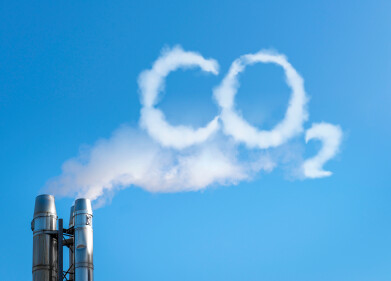Fuel for thought
What Foods Contain Petroleum?
Jan 15 2016
Petroleum is widely renowned as a resource that powers cars, planes and other vehicles. Other applications include lubricating machinery and creating the petro-chemicals that are used to manufacture clothes, computers, cleaning products and more. But did you know that the naturally occurring liquid is also found in a myriad of consumables?
In the food industry it’s known as mineral oil. Unlike its counterparts such as vegetable and olive oil, petroleum doesn’t go rancid. Why? Primarily because it’s not a food.
So where could petroleum be lurking in your pantry? Read on as we uncover some of the most common places the controversial ingredient hides:
- Packaged baked goods often contain petroleum as a way of keeping them ‘fresh’ and mould free. While regular flour, water, egg, milk and sugar combinations go bad relatively quickly, mineral oil keeps them at their prime for weeks.
- Some chocolates are made with petroleum by-products. You’ll see this labelled as food-grade paraffin wax.
- Any product that contains Olestra is also a cause for concern. It’s an indigestible plastic with similar properties to mineral oil.
- TBHQ aka “tert-Butylhydroquinone” is a major cause for concern as it’s found in a myriad of products. From frozen chicken nuggets and pizzas to rice crackers and cookies, supermarkets are brimming with TBHQ.
- Petroleum derived products are commonly used in a kaleidoscope of food colourings. These are added to everything from corn chips to fresh apples.
- They may not necessarily be classified as ‘edibles’ but painkillers and vitamins are often packed full of petrochemicals. They contain acetylsalicylic acid, the active ingredient in a multitude of over the counter painkillers such as aspirin.
- Food additives can also be packed full of petroleum. Canned products are a particular concern as oil is used to extend their shelf lives.
While food manufacturers maintain that petroleum derived ingredients are perfectly safe, some health scientists insist that they’ve hugely dangerous. They’ve found links to cancer, ADHD in children and a plethora of other health problems.
The oil industry is notoriously toxic, with companies accused of releasing all kinds of contaminants into the environment. ‘Unconsidered Mercury Emissions from the Oil and Gas Industry’ looks at the presence of mercury, and the affect it has on the natural environment. While natural sources of atmospheric mercury such as volcanoes, geologic deposits and volatilisation from the ocean are relatively harmless, human activities such as coal burning, mining, smelting, iron production, medical waste incineration and other activities are another story.
Digital Edition
PIN 26.1 Feb/Mar 2025
March 2025
Analytical Instrumentation - Elemental Analysis for Quality and Process Control at Refineries, for Lubricants and Wear Metals in Engine Oils - Synthetic Lubricants: New Developments - Scaling...
View all digital editions
Events
Apr 02 2025 Saigon, Vietnam
Apr 02 2025 Atyrau, Kazakhstan
Apr 08 2025 Birmingham, UK
Apr 08 2025 Kielce, Poland
Apr 08 2025 Ravenna, Italy



















